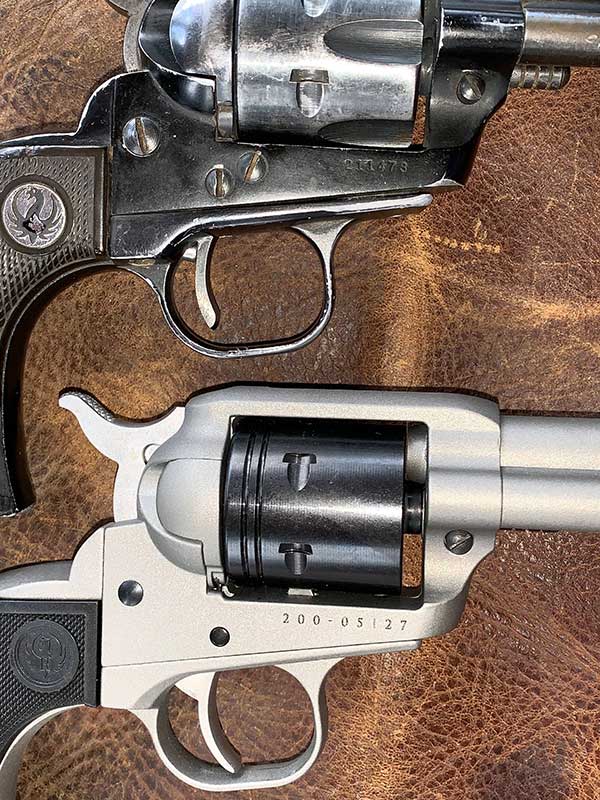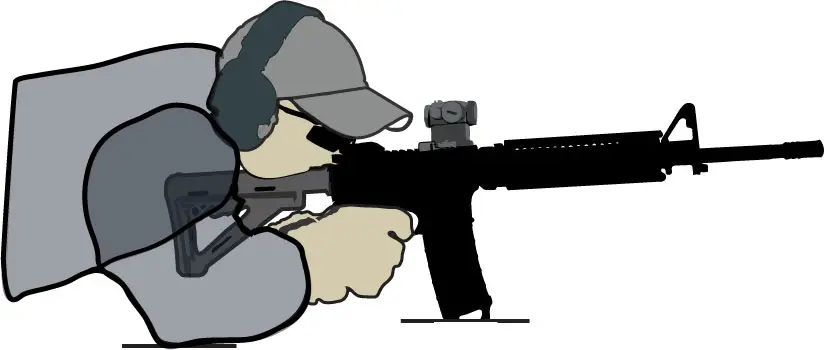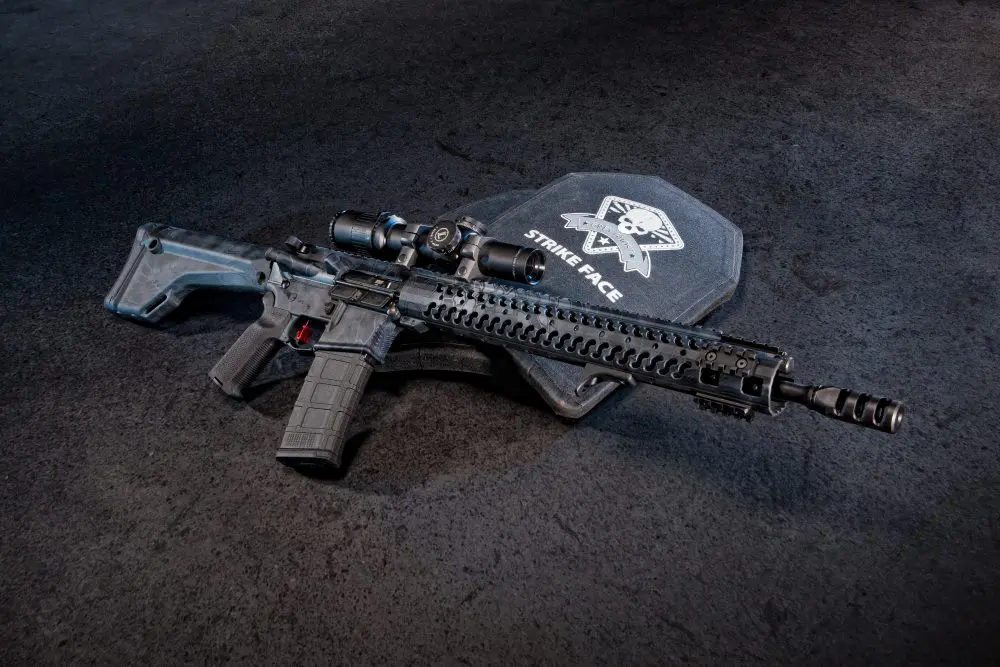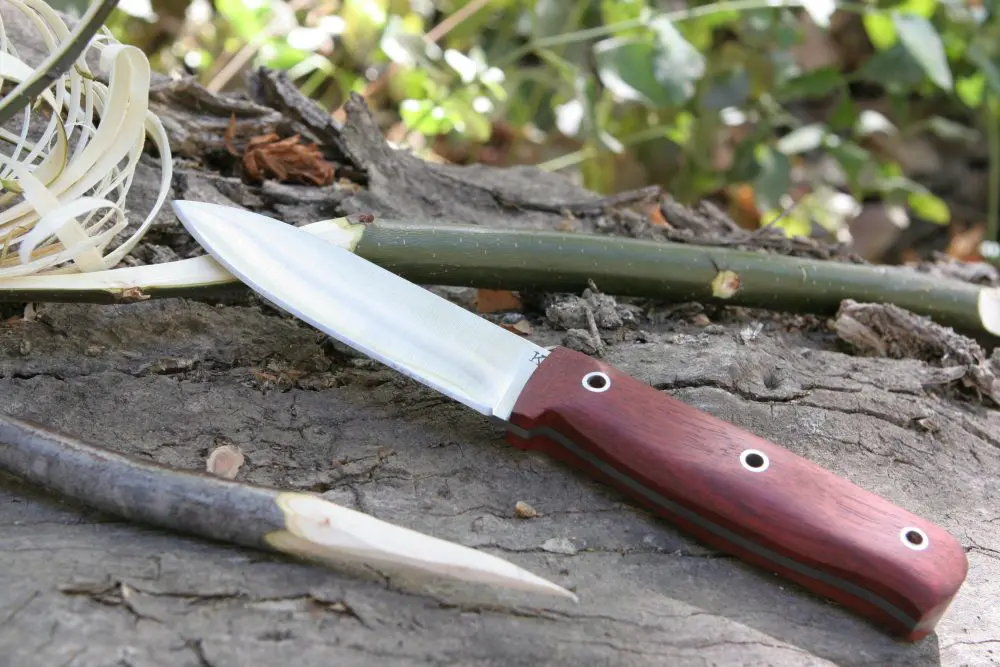Ask a man what color the sky is, and he’ll tell you it’s blue.
Ask a woman, and before answering she’ll inquire as to whether it’s day or night, if there’s a blinding snowstorm occurring, if you’re outdoors or ensconced in a cave, if it’s during a solar eclipse, or if it’s aurora borealis season.
But while it is generally agreed that men and women process information differently, is there a valid basis—as some people assert—for weapons and tactics training to be conducted differently based solely on trainee gender?
Methinks not.
Admittedly, there are physical discrepancies between the two, such as a shorter torso and generally smaller hands prevalent in the fairer sex, but these should—in this author’s opinion—govern only the mechanical equipment selection used by the operator. It should have nothing to do with the user’s ability because, after all, there are many males who have smaller-than-average hand size as well.
If someone’s hands—male or female—are too small to securely grip a pistol, for example, you have an uphill battle and will never be a competent gunfighter without physical manual compensatory techniques. And this is not a good idea, irrespective of gender, because if you’re going to swim upstream like a salmon, the bear has all the advantage.
Unfortunately, as the old saying goes, sometimes you have to make cake out of feces. This often occurs in law enforcement circles, where somebody in administration sits behind an oak desk and decides what equipment and techniques the front-line officers will use—often without having a clue what said officers encounter and/or do on shift. The most common of these “bean counter” examples is the issue of one-size-fits-all sidearms.
Since logistics and finances are always a consideration, the concept is based on the assumption that if the trainee undergoes decent firearms training, he will automatically be Robocop, the department armorer will have to work on only a couple of weapons systems, costs can be curtailed, and in the event of confrontation, ammunition—if need be—can be shared among combatants.
The fallacy of this line of thinking is yes, the armorer and the accountant are happy—but at the potential risk of peoples’ lives. And morally and ethically, that is despicable. Because irrespective of physical and mental training, if, for whatever reason, you are physically incapable of handling a firearm, you shouldn’t be—or allowed to be—carrying the weapon. You’re a liability unto everybody but the enemy, because you’re not going to hit anything.
And being the jerk that I am, if you want my spare ammo because you’ve run out, there’d better be a pile of deceased enemies in front of you or you’re not getting mine.
Suffice it to say, however, that the huge predominance of pistol-packers are not law enforcement officers or soldiers, and therefore have the leeway to choose a handgun specifically relative to fit, function and personal strategic requirements.
So it’s back to the whys and wherefores of the reasoning behind different weapons and tactics training based on gender. Firstly, for one glorious Utopian moment, let’s climb off the political correctness bandwagon, because in law enforcement, fire and military circles, if you can’t cut the job, you shouldn’t be hired—male or female. Good people are dying while PC non-combatants find loopholes in the law of the land.
So why, assuming physical fit of the weapon isn’t a problem, are women generally trained differently than their male counterparts? It’s partially societal and partially chauvinism, that’s why. Generally, the societal norm has run on the hunter/gatherer system: Man hunts, dog fetches, woman cooks, man eats. Partially based on physical strength, and partially on etiquette—which are both understandable and admirable attributes. The flip-side is based on the Good Old Boys Club syndrome: “We don’t want a girl playing in our sandbox.”
If there’s a viable reason, such as qualification requirements for upper body strength, that’s one thing—and it has all the validity in the world. On the other hand, I read with puzzlement an article written by a male contributor to a women’s firearms publication, in which he flatly stated that women shouldn’t shoot a shotgun bigger than a .410 “because of excessive weight and recoil.” So when’s the last time you gave birth to triplets, Ace?
Let’s face it, apart from some base physical differences that can affect fighting performance, as far as weapons training goes, the two genders are pretty much the same if we cut out the politically correct and etiquette aspects. Granted, it would probably be insanity to shove any female into an Unlimited cage fight with a male opponent, but I don’t know that I would have cared to go up against Boadicea and her sword, either.
Just like the boys, the girls have two eyes, so they can focus on a front sight to shoot. We know they have better auditory and olfactory senses than males, because they’ll hear anything you hope they don’t, can smell when you’re lying about a gun purchase and can sniff out where you hid your mad money. Their oral capabilities are more efficient than that of a man, because you can never win a verbal confrontation with a woman.
Their mental capability is sharper than their male counterparts, because they’ll never forget anything you ever did wrong, and—like a mama bear protecting her cubs—once fired up, they are probably more vicious psychologically than males.
And last, but not least, women genetically have more lower body strength, allowing good balance and generally smoother footwork than men.
On a training range, ignore their physical attributes (or your personal perception of the lack thereof), conduct yourself with etiquette, and run everything else the same as you would with males. You may be pleasantly surprised with the results.
Train them differently than anybody else, and they will perform differently than anybody else—and it won’t be for the better.
And never, ever forget:
“Heaven has no rage like love to hatred turned, Nor hell a fury like a woman scorned.”—Congreve
“Especially when she’s armed and competently trained.”—Me
[Louis Awerbuck is Director of the internationally acclaimed Yavapai Firearms Academy. Course information and schedules are available at their website at www.yfainc.com]




